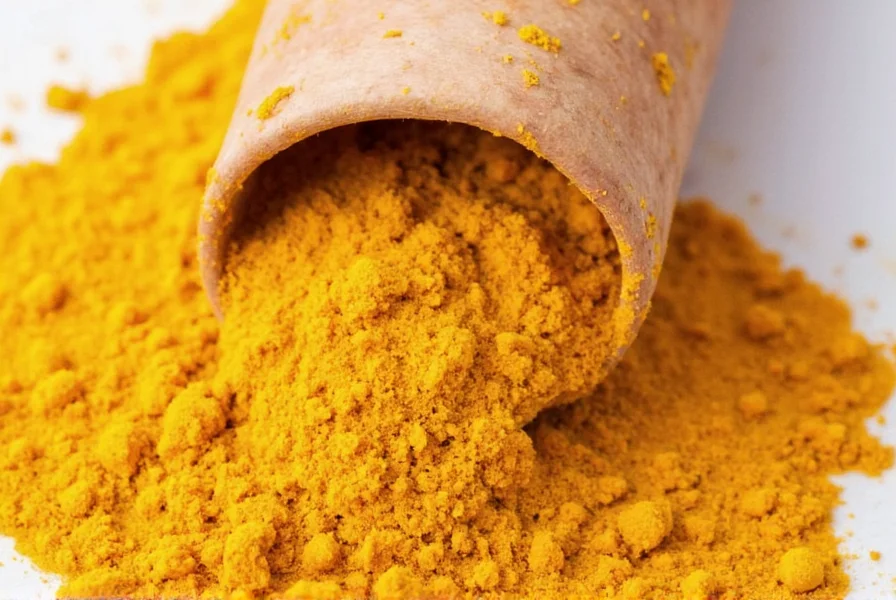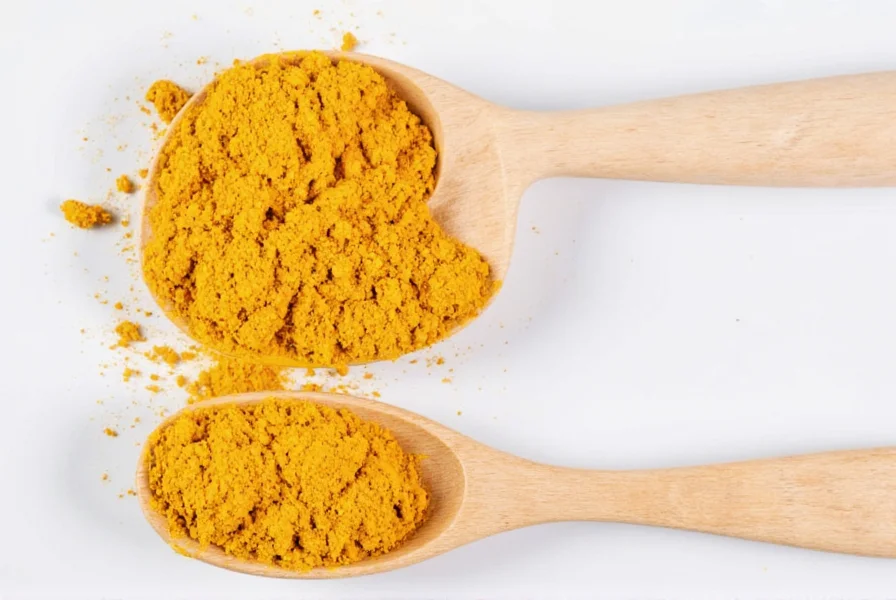For centuries, turmeric has been used in traditional medicine systems for its purported health benefits. Modern research is now examining whether this golden spice lives up to its reputation, particularly regarding liver health. The liver performs over 500 vital functions, including detoxification, metabolism, and nutrient storage. When liver function becomes compromised, it can lead to serious health consequences. This article examines what current scientific evidence reveals about turmeric's potential role in supporting liver health.
The Active Compound: Curcumin
Turmeric contains curcuminoids, with curcumin being the most studied compound. Curcumin makes up only about 2-8% of turmeric by weight, which explains why many studies use concentrated extracts rather than culinary turmeric. This compound demonstrates potent anti-inflammatory and antioxidant properties that may benefit liver tissue.
Liver Health Fundamentals
Your liver processes everything you eat, drink, and breathe. Common threats to liver health include:
- Non-alcoholic fatty liver disease (NAFLD), affecting up to 25% of adults globally
- Alcohol-related liver damage
- Viral hepatitis
- Medication-induced liver injury
- Environmental toxin exposure
Elevated liver enzymes like ALT and AST often indicate liver stress or damage. Many people search for natural approaches to support liver function, leading to questions about does turmeric help liver detox processes.
Scientific Evidence on Turmeric and Liver Health
Multiple clinical studies have investigated turmeric's effects on liver health:
| Study | Participants | Findings |
|---|---|---|
| 2020 Randomized Trial | 60 with NAFLD | Curcumin (70mg/day) reduced liver fat by 75% and improved liver enzymes |
| 2018 Meta-Analysis | 5 studies, 300+ participants | Significant reductions in ALT and AST levels with curcumin supplementation |
| 2022 Review | Animal and human studies | Curcumin shows promise for reducing liver inflammation but human evidence remains limited |
Research specifically examining turmeric benefits for fatty liver shows the most promise. A 2020 randomized controlled trial published in Nutrition Journal found that participants with non-alcoholic fatty liver disease who took curcumin supplements experienced significant reductions in liver fat accumulation compared to placebo.

Mechanisms of Liver Support
Curcumin appears to support liver health through several biological pathways:
- Antioxidant effects: Neutralizes free radicals that damage liver cells
- Anti-inflammatory action: Inhibits NF-kB, a key inflammation pathway
- Fat metabolism: May improve how the liver processes and stores fats
- Detoxification support: Enhances phase II liver detoxification enzymes
These mechanisms explain why researchers are investigating curcumin liver inflammation reduction as a potential therapeutic approach. However, most evidence comes from cell studies, animal models, or small human trials.
Practical Considerations for Use
If considering turmeric for liver support, several factors matter:
Bioavailability Challenges
Curcumin has notoriously poor absorption. Most supplements combine it with piperine (from black pepper) or use specialized formulations to enhance bioavailability. Without these enhancements, the body absorbs less than 1% of consumed curcumin.
Dosage Guidelines
Research on how much turmeric for liver health varies:
- Culinary use: 1-3 grams of turmeric powder daily (about 1/2 to 1 1/2 teaspoons)
- Supplemental use: 500-2,000 mg of curcumin extract daily, often divided doses
- Therapeutic doses in studies: Typically 70-500 mg of standardized curcumin
Higher doses don't necessarily mean better results. The 2020 NAFLD study showing significant benefits used just 70mg of a highly bioavailable curcumin formulation.
Safety and Interactions
Turmeric is generally safe at culinary doses, but higher supplemental doses may cause:
- Digestive upset in sensitive individuals
- Increased bleeding risk when combined with blood thinners
- Potential interactions with diabetes medications
- Theoretical concerns for gallbladder issues
People with liver disease should exercise particular caution. While researching turmeric and liver enzyme levels, some studies suggest curcumin might affect how the liver metabolizes certain medications.
Limitations of Current Research
Despite promising findings, significant limitations exist in the current body of research:
- Most human studies have small sample sizes
- Long-term safety data is limited
- Optimal dosing remains unclear
- Effects may vary based on individual genetics and health status
- Commercial supplements vary widely in quality and potency
The scientific evidence turmeric liver benefits, while encouraging, doesn't support claims that turmeric can reverse advanced liver disease or replace conventional medical treatments.
When to Consult a Healthcare Provider
Before adding turmeric supplements to support liver health, consult your healthcare provider if you:
- Have diagnosed liver disease
- Take medications metabolized by the liver
- Have gallbladder problems
- Are scheduled for surgery
- Are pregnant or breastfeeding
Regular monitoring of liver function through blood tests remains essential for those with liver concerns. Don't rely solely on natural liver support with turmeric without medical supervision.
Conclusion: A Supportive Role, Not a Solution
Current evidence suggests turmeric, particularly in the form of bioavailable curcumin, may offer modest support for liver health, especially for early-stage fatty liver conditions. It works best as part of a comprehensive approach that includes proper nutrition, exercise, and medical care when needed. While culinary use of turmeric appears safe for most people, therapeutic supplementation requires careful consideration of dosage, quality, and potential interactions. The most effective liver support strategies remain maintaining a healthy weight, limiting alcohol, avoiding unnecessary medications, and following medical advice for existing conditions.
Frequently Asked Questions
Does turmeric actually help with liver detoxification?
Turmeric, specifically its active compound curcumin, may support the liver's natural detoxification processes by enhancing phase II detoxification enzymes. However, it doesn't 'detox' the liver in the way many wellness products claim. The liver naturally detoxifies the body, and turmeric may provide modest support to this existing function rather than creating a 'detox' effect. Scientific evidence shows it may help reduce oxidative stress that can impair liver function.
How much turmeric should I take for liver health?
For culinary use, 1-3 grams of turmeric powder daily (about 1/2 to 1 1/2 teaspoons) is generally safe. For therapeutic benefits, studies showing liver improvements typically used 70-500 mg of bioavailable curcumin extract daily. Higher doses don't necessarily provide additional benefits and may cause digestive issues. Always consult your healthcare provider before starting supplements, especially if you have liver conditions or take medications.
Can turmeric reverse fatty liver disease?
Research suggests turmeric may help improve markers of non-alcoholic fatty liver disease (NAFLD), particularly in early stages, but it cannot reverse advanced liver damage. A 2020 study showed significant reduction in liver fat with curcumin supplementation, but these improvements occurred alongside other lifestyle factors. Turmeric should be considered a complementary approach, not a standalone treatment for fatty liver disease.
Are there risks of taking turmeric if I have liver disease?
While turmeric is generally safe at culinary doses, people with existing liver conditions should exercise caution with supplements. High-dose curcumin may interact with medications processed by the liver. Some case reports suggest potential liver effects from certain turmeric supplements, though causation isn't established. Always consult your healthcare provider before adding turmeric supplements if you have diagnosed liver disease, as individual factors significantly affect safety and efficacy.











 浙公网安备
33010002000092号
浙公网安备
33010002000092号 浙B2-20120091-4
浙B2-20120091-4